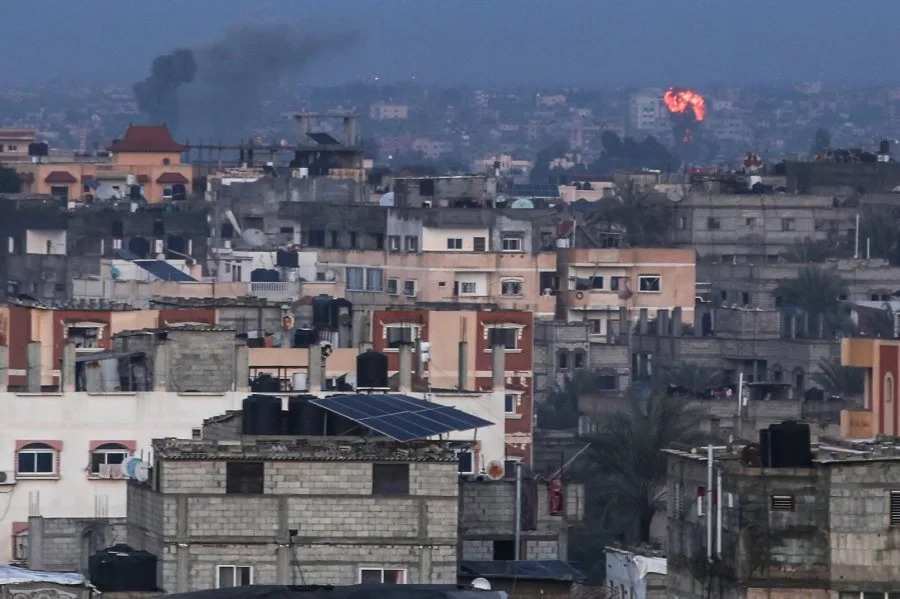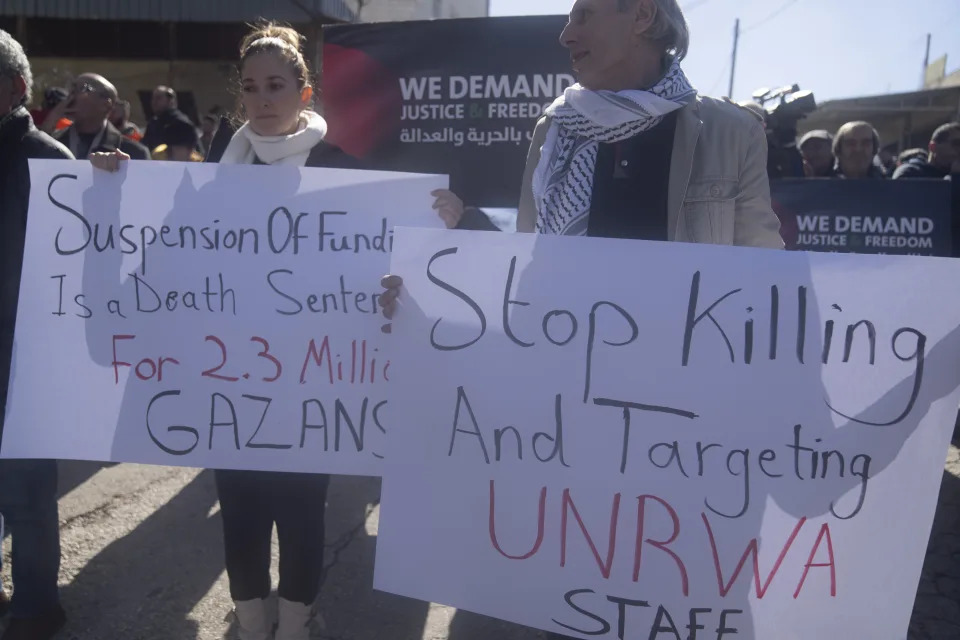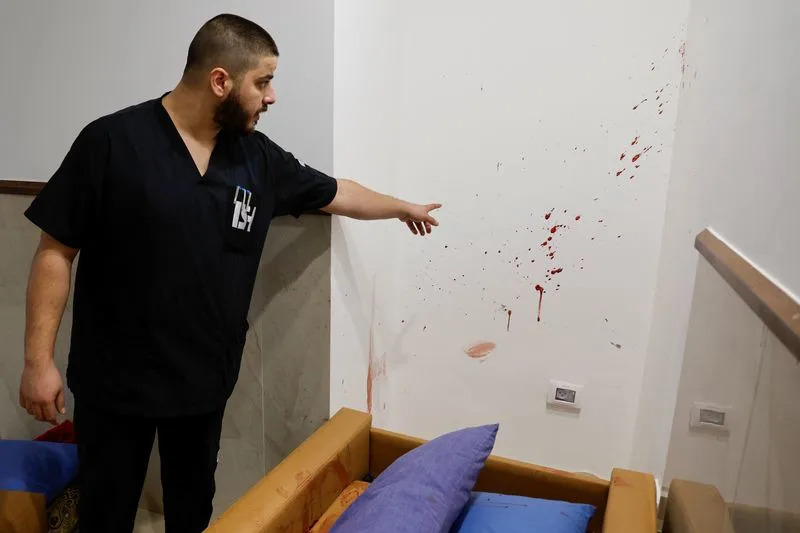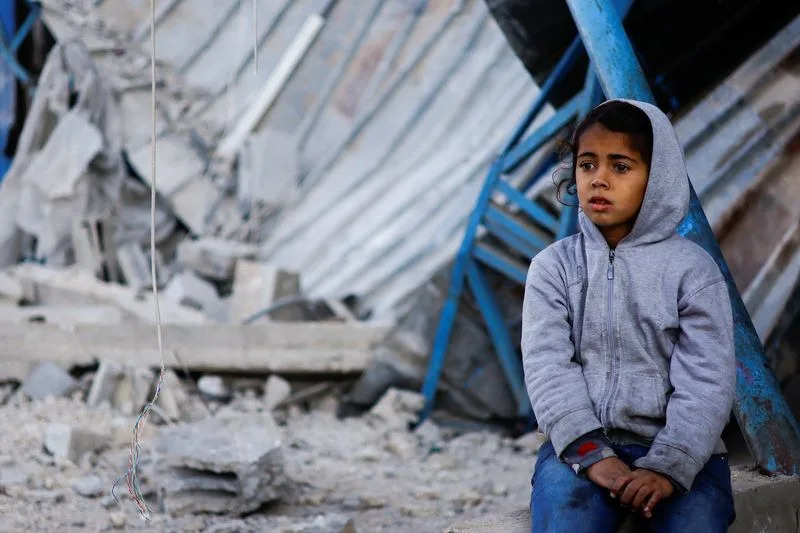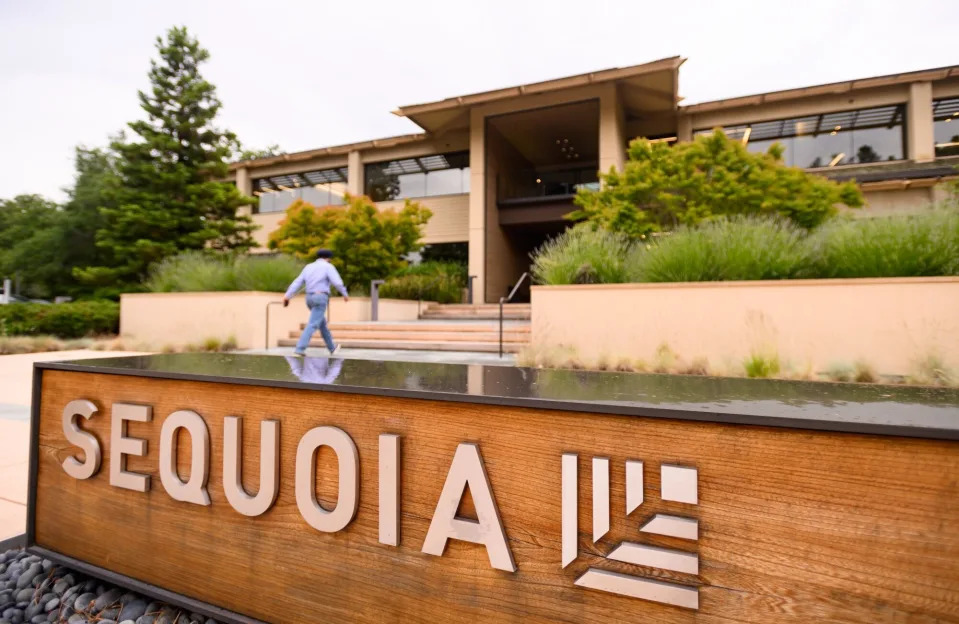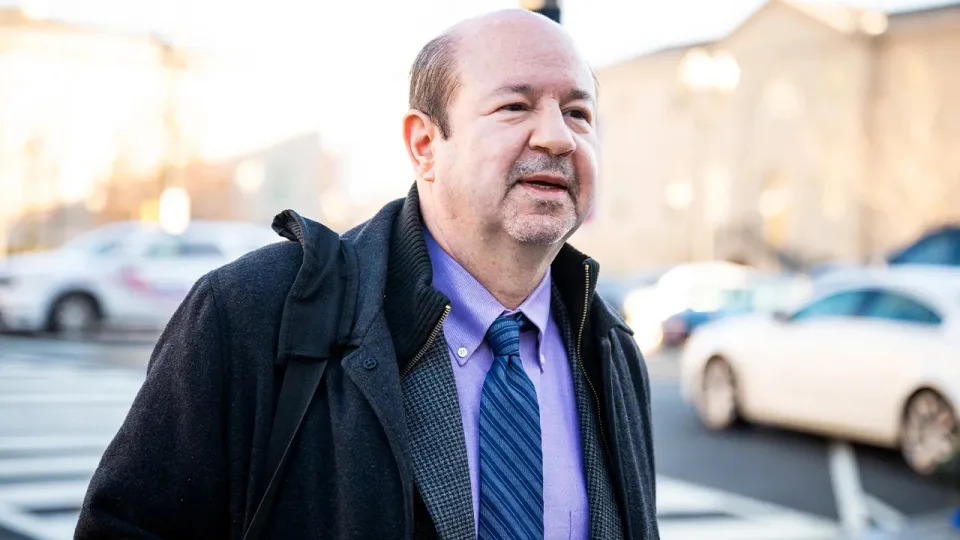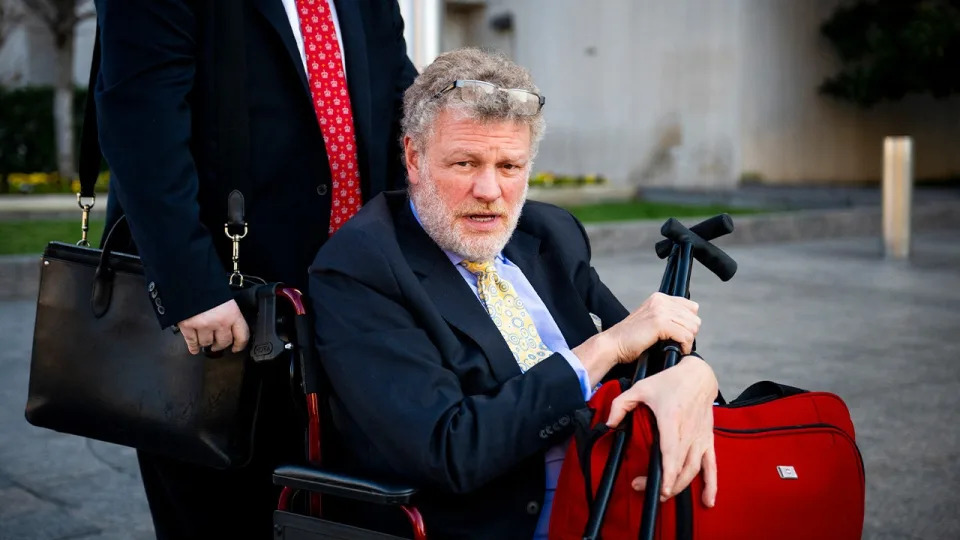Brown University students enter eighth day of hunger strike over Israel-Gaza
Nadine Yousif - BBC News
Fri, February 9, 2024

A group of Brown University students have entered the eighth day of a hunger strike to pressure their school to divest from businesses they say benefit from Israel's occupation of Palestinian territories.
The 19 students began their protests on 2 February.
They said they will continue until Brown officials consider divesting.
It is likely the longest hunger strike in the US since the beginning of the ongoing Israel-Gaza war.
The strike at the Ivy League university in Rhode Island has been organised by campus groups Palestine Solidarity Caucus and Jews for Ceasefire Now.
It is led by both Palestinian and Jewish students, said Ariela Rosenzweig, one of the students striking.
More than 27,900 Palestinians have been killed and at least 67,000 injured after Israel launched its campaign in the Palestinian enclave, according to the health ministry - which is run by Hamas.
The campaign followed an unprecedented assault by Hamas gunmen on 7 October, in which more than 1,200 people in southern Israel were killed, according to Israeli officials.
Ms Rosenzweig, 22, said it was inspired by a similar 11-day hunger strike on campus in 1986 which called for divestment from firms operating under apartheid in South Africa.
"I see our hunger strike as part of a lineage of student organising," she told the BBC on Friday, adding that it follows months of protest at the university, including a sit-in in November where 61 students were arrested.
"It is a desperate plea for the university to not only hear our voices, but the voices of thousands who have been murdered in Gaza," Ms Rosenzweig said.
As part of the hunger strike, the students said they have only consumed water and pedialyte - an electrolyte solution - for over a week.
They added they have spent each day at the university's campus centre, taking part in protests and other programming to raise awareness about Israel's ongoing military campaign in Gaza, and have received support from other students and faculty.
Their action seeks to pressure Brown to consider a proposal recommending that it divest from companies that "profit from human rights abuses in Palestine".
The 16-page proposal, penned in 2020 by Brown's advisory committee on corporate responsibility in investment policies (ACCRIP), names 11 companies, including RTX Corporation, a weapons manufacturer and Northrop Grumman, a military company, among others.
The strike was timed ahead of a series of closed meetings by the Corporation of Brown taking place Thursday and Friday, where the students hoped their demands would be discussed.
In a letter sent to the students at the beginning of the hunger strike, Brown President Christina Paxson expressed concern for their wellbeing, but added that "the bar for divestment is high".
"It requires a demonstration that the University's investments in the assets of specific companies create social harm, and that divestment will alleviate that harm," she said in the letter, dated 4 February.
The president added that the university rejects using the endowment "as a tool for political advocacy on contested issues".
In an email, Brown spokesperson Brian Clark told BBC that the university is not directly invested in any defence stocks or large munition manufacturers.
And while a large percentage of the university's endowment is overseen by third-party managers, he said Brown is "confident that our external managers have the highest level of ethics and share the values of the Brown community, including the rejection of violence".
Sherena Razek, a PhD student and one of the organisers of the divestment campaign, said she believes the university's response shows "a lack of regard" for the students undertaking the hunger strike and their request.
She noted that the university has used divestment in the past to protest other issues, like the South African Apartheid, the Darfur genocide in Sudan and the tobacco industry.
Ms Rosenzweig said that given the university's divestment history, she and the other students believe their request is not impractical.
The hunger strike began as Hisham Awartani, a Palestinian-American student, returned to Brown's campus after spending months recovering from a gunshot wound to his spine.
Mr Awartani, who is among the students supporting the calls for divestment, was one of three young Palestinian-Americans who were shot in Burlington, Vermont on Thanksgiving weekend, in what they believe was a hate crime.
The suspected gunman, 48-year-old Jason Eaton, has pleaded not guilty to three counts of second-degree attempted murder.
During the hunger strike, some students carried signs that read "no others like Hisham".
The protests at Brown are among many that have taken place across American university campuses, which have become the backdrop to heated debates on the ongoing Israel-Gaza war since October.
While it is likely the longest hunger strike in the US since October, it is not the first. Advocates, including Sex and the City actress Cynthia Nixon, staged a five-day hunger strike in November outside the White House calling for a ceasefire in Gaza.
A Gazan man in Bristol was in hospital in December after being on a hunger strike for nearly two months over the war.
